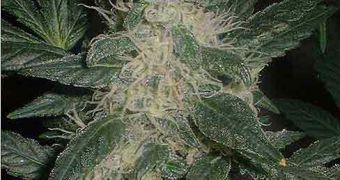Quitting marijuana can be extremely difficult.
But now better therapies against this addiction in humans could be based on a recently discovered chemical that decreases the desire for marijuana and impedes its brain effects.
Rats that received the chemical extracted from larkspur, a plant in the buttercup family, lose their desire for a synthetic molecule of tetrahydrocannabinol (THC), the active chemical found in cannabis. The chemical also stopped a reward response in the rats' brains for the synthetic THC.
The team lead by Steven Goldberg at the National Institute on Drug Abuse in Maryland, US, put rats in a cage with a lever the animals could press to get shot with a dose of the synthetic THC. During the three weeks administration, the rats got addicted to the synthetic THC and frequently self-administered the drug while animals that got saline solution did not press the lever too much.
When the team injected the rats with methyllycaconitine (MLA), a chemical extracted from the seeds of larkspur (Delphinium brownii), the effects on the rats' behavior were powerful. Just one shot of MLA made the rats administer themselves synthetic THC 70% less than before.
MLA also did not seem to affect the rats' movement and coordination or to induce other side effects. The researchers also made microdialysis to fluid samples from the brain's reward-signalling nucleus accumbens.
When synthetic THC was administered, dopamine ("pleasure hormone") levels normally boomed in the nucleus accumbens, but MLA impeded the dopamine boost in accumbens.
"The increases in dopamine are virtually non-existent because of MLA. MLA did not lower dopamine levels below normal amounts. This is important because it suggests that a similar therapy for humans would not interfere with normal reward signalling in the brain. The drug Rimonobant, which makes monkeys less likely to self-administer THC, has been linked to depression in humans." said Goldberg.
MLA could attach to certain cell receptors in the brain named alpha-7 nicotinic receptors, but its precise effects are still not known.
"There is a genuine need for medications to help cannabis addicts overcome their drug problem. About 10% of the people who experiment with it go on to heavy use and have trouble voluntarily giving it up. I think there is a proportion of the population who need ways to make them stop." said Goldberg.

 14 DAY TRIAL //
14 DAY TRIAL //